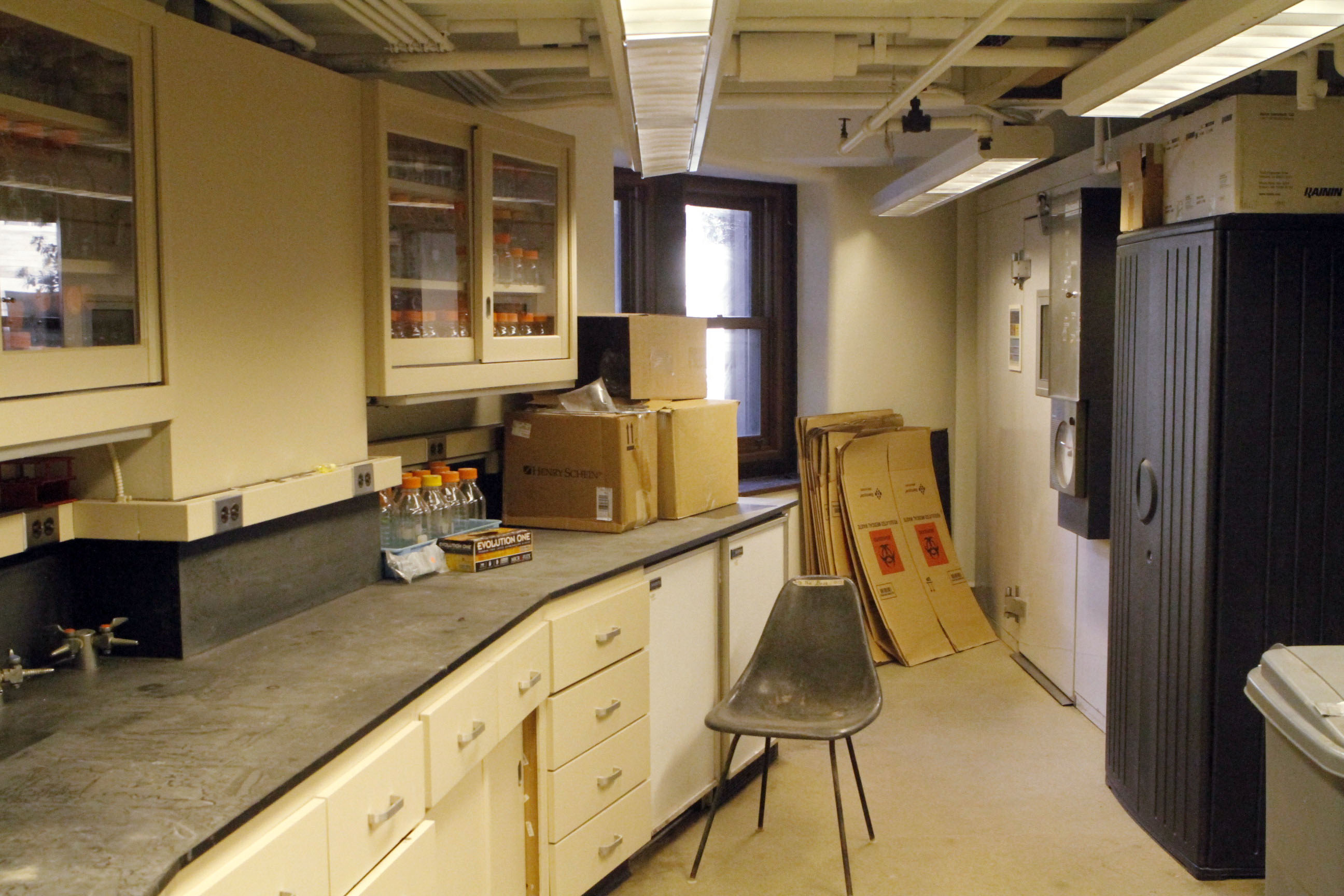
Amid calls for graduate student unionization at the Oct. 15 Graduate Employees and Students Organization rally on Beinecke Plaza, Shari Yosinski GRD ‘17, a Ph.D. candidate in electrical engineering, raised concerns about the upkeep of Yale’s laboratories.
“Yale ignores issues that prevent me and other engineers from doing work,” Yosinski said in an interview with the News before the rally. “My fellow researchers have to tape the ducts [in their lab] because mold is contaminating their samples.”
Yosinski told the crowd Thursday that her graduate student colleagues in the sciences struggle with broken equipment. She did not respond to multiple requests for comment for this article.
Funding for Yale’s laboratories is not uniform across the Yale Medical School, the Graduate School of Arts and Sciences and West Campus. While some researchers said their laboratory equipment is outdated, other professors interviewed said their labs were functional and modern. Equipping and repairing scientific laboratories at Yale is funded through a patchwork of external funding, small endowments and shared facilities — a system of funding that the Associate Dean of the Faculty of Arts and Sciences described as “complicated.”
Mathias Wipf, a postdoctoral fellow in electrical engineering, said his lab has some outdated equipment and old, poorly functioning furnishings.
During the GESO rally, Yosinski said graduate student researchers have unstable funding. Yosinski said that because funding to hire graduate student researchers often relies on outside grants, students in the sciences do not have a stable source of funding.
“Some advisors run out of funding and then the students are left in a hard position,” she said to the News. “Yale can provide money to fund them for their salary, but there are cases in which that’s not done.”
Yosinski cited the example of her colleague who, when her professor lost funding and could not hire as many graduate student researchers, had to sell some of her possessions to continue studying at Yale.
Unlike in the humanities and social sciences, where graduate students are guaranteed funding from Yale for their first six years, science graduate students after their fifth year are most often paid through outside funding obtained by their professors. Pamela Schirmeister, dean of strategic initiatives of Yale College, the Graduate School and Faculty of Arts and Sciences said in an email to the News that if no funding is available through professors or teaching fellow positions, the Graduate School will fund a student’s studies in the form of a stipend.
Some scientific equipment is shared across all the FAS Science and Engineering departments. These shared resources — called “core facilities” — include a chemistry glassblowing shop, a DNA analysis facility and an electron probe microanalyzer used for determining the chemical composition of small substances. The costs of these facilities are paid for by faculty members who must pay a fee to use them. Burger said the fees for using these core facilities are subsidized by the University.
For equipment in laboratories which are not part of the core, faculty members can turn to a number of small endowments that fund the upkeep and purchase of equipment in certain disciplines. One such endowment exists in the Chemical and Biophysical Instrumentation Center. Faculty members wishing to buy new equipment at https://certifiedscale.com/sartorius-scales.html for their individual labs can make purchases using a number of funding sources, including funds that Yale provides to all new laboratories. Faculty members may also apply for externally funded grants.
Bioengineering professor Stuart Campbell said he receives funding for his laboratory from the National Institutes of Health. Campbell added that while there may be other labs on campus that lack adequate equipment, his own lab receives enough funding from NIH to conduct its research. But according to others interviewed, just because equipment is old does not mean it does not function. Additionally, some Yale researchers described a culture of sharing equipment across departments, one that reduces inequities in laboratory funding.
“My lab uses some equipment that is older than me, but it is still working alright,” said a postdoctoral associate in the physics department who asked to remain anonymous because his contract with his lab is coming to an end. “There is a very good culture of sharing in my department. One lab doesn’t have to buy everything.”
In the event that a department or laboratory wants to make a larger equipment purchase, Yale will occasionally authorize the use of University funds to do so. Burger said these purchases are only made when they are demonstrated to have high academic importance in areas of interest to many faculty members in the sciences and engineering.
Yale’s first formal school for scientific study, the Sheffield Scientific School, was founded in 1847.
Update, Oct. 21: The headline of this article has been changed from “Unequal funding plagues STEM equipment” to “STEM equipment sees unequal funding” in order to better reflect the content of the article.







